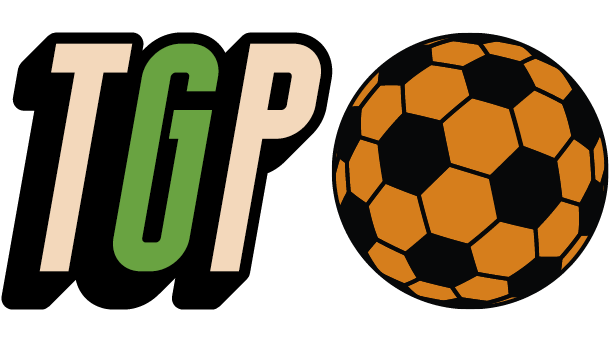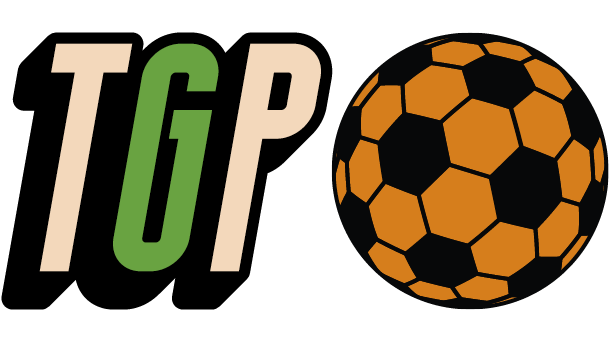A devastating diagnosis called time on Alex Bailess blossoming career with Hashtag United Women, but she’s shown the strength and positivity to flourish in a new role.
Words and Images By Liam Newman.

“I was at work and I just cried in the toilets for a bit. I didn’t even think about any actual medical concerns or how this could affect my future – the only thing I worried about was football.”
After the abrupt and disappointing end of a null and void 2019/20 season, the return of football ahead of 2020/21 was supposed to be a time of immense excitement for players up and down the country. None more so than Alex Bailess.
Having been club captain for AFC Basildon of the women’s fourth tier, Bailess and her teammates saw their fortunes change overnight in April 2020 with the news of a merger with online sensation Hashtag United to become the Tags’ new women’s outfit.
Following years of financial frailties behind the scenes, the stability and exposure offered by the merger was a dream come true for Essex’s most successful women’s club. Then, just six days before the club’s first fixture, Bailess received the gut-wrenching news that her dream was over.
“For a long time I felt like I was grieving the loss of football, and I guess my life as I knew it. I still haven’t cleared out my football bag from the last match I played in”
At just twenty-six, the left-back had been forced to hang up her boots for good due to a diagnosis of cardiomyopathy, a disease of the heart muscle.
“I told my partner and my parents, then Jason [the team manager] – that was the order it went in,” says Bailess. “I was dreading telling the girls because this meant it was for real: no more football, no more Hashtag.”
Cardiomyopathy is a condition that hinders the heart’s ability to pump blood, particularly during intense exercise. Marc-Vivien Foé and Fabrice Muamba are just two high-profile cases that show the devastation the condition can cause, while Barrow’s Lewis Hardcastle was forced to retire after his diagnosis in early 2021.
Sadly, Bailess needn’t look far to see the potential trauma of the disease. In 2019, her cousin tragically died from the condition aged just twenty-one. The family tragedy had struck without any prior warning of health complications. Given the disease’s hereditary nature, Bailess soon underwent medical examinations.
“The charity Cardiac Risk in the Young (CRY) was invaluable in helping me and my family access cardiac screening,” explains Bailess. “Obviously, things were delayed due to Covid-19. It took about two years to get an actual diagnosis which included being referred to different specialist hospitals, particularly as this type of cardiomyopathy isn’t very common and needed a specialist cardiologist.”
While she hoped that her career could continue, the prospect of not being able to end things on her own terms circled overhead throughout 2019/20.
“Of course, when the thing you love doing most in this world is threatened, it plays on your mind. But you try not to think about that.
“After initial investigations, I was advised to stop playing football until I had a certain diagnosis; but this wasn’t good enough for me, so I carried on playing for another season. I then had a repeat MRI scan of my heart which had already shown some progression in the scarring. So, I kind of knew what was coming during pre-season but I just kept going. Looking back, it might have been better to find out before the pre-season fitness started – I could have got away with that!”
Despite her acquiesce, the former defender concedes that the timing of her sudden retirement was “just devastating and to be honest still is to this day.” She continues: “I was so, so excited to play in my kit for the first time and to lead the team out as captain.
“I really tried to be the face of the team, to get us that exposure we needed and demonstrate why we deserved to be the first ever women’s side for the super successful Hashtag United. To never get to play was a nightmare. For a long time I felt like I was grieving the loss of football, and I guess my life as I knew it. I still haven’t cleared out my football bag from the last match I played in.”
Alex is an NHS respiratory physiotherapist and admits that letting go of her playing career has been tough. “Being a footballer is part of my identity,” she says. “For example, I had told colleagues at work about Hashtag and a lot of people know me as a footballer. Doctors would even introduce me to patients as this to build rapport. Continuously explaining that I couldn’t play anymore just felt so sad every time I had to repeat it.
“Even now, it feels silly to be so sad over a hobby. But when it has been part of your life since you were little, it feels like so much more than that.” Almost a year later, she is now at peace with the situation and reflects on her career with happiness and pride.
Having started out, like many girls in a pre-London 2012 era, at a local boys’ team, Bailess was scouted for Leyton Orient Academy before later transitioning into senior football, eventually becoming club captain of Basildon. “Playing football has definitely given me opportunities that I never would have had otherwise,” she says, citing playing at Wembley Stadium as a magical moment.
Bailess also cherishes the friendships formed with “a huge variety of people from all different walks of life”, as well as the on-field success of winning the Development League.
Somewhat peculiarly, the sudden end to her final campaign is something she philosophically proposes may have been for the best, confirming that it is “something I’ve spoken to Jason about at length. He suggested that when you know something is ending then you start to focus on, ‘that’s my last home game’, ‘that’s my last away journey’, ‘my last goal’ (jokes, I never score!), then if things don’t go your way it becomes unenjoyable. So, maybe that would be worse.
“I do really wish I’d got to play in our County Cup final that year and lifted the trophy as captain, but it got delayed due to Covid-19. That would have been a moment to remember!”
“When I was first diagnosed, I asked if I could play just one more year. My consultant told me to think of it that my cousin had left me the gift of knowing about this before it was too late. That was enough for me”
One silver lining for the former full-back, however, was that she could fall back on the support of her team and the possibilities that had emerged on the back of joining the Hashtag United brand. Over time, it has become the source of solace that has supported her transition into the next phase of life.
“In some ways the timing of the Hashtag merger probably made it harder because I was so excited about playing for them and being the first women’s club captain,” says Bailess. “But now I understand that it has opened up many more doors for me to be involved with the media side. Spencer and the team have definitely made me feel welcome and pushed for me to be a part of that, which I’m very grateful for.
“In the first training session that I wasn’t able to join in with, LP and Stampy [media gurus at Hashtag] came down to film. Although I was sitting on the sidelines feeling sorry for myself, they started chatting to me about how, actually, this was the perfect opportunity to become the media representative for the women’s side, particularly as I know the girls so well and they weren’t used to being on camera.
“[They said] it would be good to have someone that can bring that side out of them and it’s definitely paid off. Is this a good time to plug my football training and gameday vlogs? Check out my YouTube channel!”
Bailess has quickly settled into her media duties at the club, providing match day social media content as well as her vlogs. While her first year on the sidelines was almost as fitful as her final playing season, those disruptions haven’t damaged her enthusiasm.
“I’m actually loving it!” she explains. “Sometimes when I’m just sitting watching, I still feel so gutted that I’m not playing but I force myself to get the camera out as a distraction and I always end up enjoying watching the footage back.
“The girls have been so good at letting me shove a camera in their face because they know that it is keeping me going. I still have a lot to learn but I’m getting there; I can now definitely appreciate the time and effort it takes to edit quality videos.”
While coaching is something that Bailess has had offers to get involved with, and is “more than happy to help out when needed” with the club’s youth teams, she admits that a more permanent position won’t be on her radar anytime soon. She clarifies: “I just want to be around my team, having a laugh with the players and supporting them on the pitch. So, I’m loving my role at the moment.
“Someone asked me if all we do at football is laugh and talk about food because that seems to be the basis of most of the vlogs and the answer is yes. We work hard on the pitch and play hard off it – this is what I want to show others, particularly those who don’t know much about this level of women’s football, and younger girls working their way up.”
It’s a unique position that Bailess currently finds herself in, and one that she clearly relishes. An army of online fans affords a “super important” opportunity to showcase the highs and lows of women’s grassroots football like never before.
“At this level, female footballers are still having to travel a long way and give up a lot of time for games whilst still working full-time. Sadly, a lot of female players have to retire as other commitments have to take priority,” she observes. “I think it’s good to bring attention to the amount of time and effort that the girls put in.”
While no longer able to contribute on the pitch, the club captain’s importance during its first year cannot be overstated. Both Bailess and the Tags will enter 2021/22 in high spirits. She proclaims that they “will be aiming for promotion next year. I can’t wait to see the girls continue to raise the standard.”
Asked about what she’d say to other players in similar situations, Bailess’ advice is clear: “Think about the bigger picture. That’s all you can do really. When I was first diagnosed, I asked if I could play just one more year. My consultant told me to think of it that my cousin had left me the gift of knowing about this before it was too late. That was enough for me.”
She concludes: “If you need some time away from sport to deal with it then take it. But, ultimately, focus on the future and find another way to get your football fix!”


